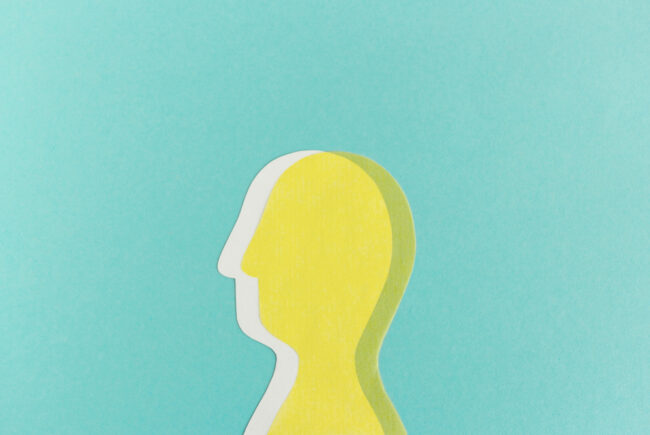

Memory is not a computer or camera that stores everything, but rather a constructive process that can change every time it is retrieved, says professor Ulrike Rimmele. Image: Shutterstock
Memory is not a computer or camera that stores everything, but rather a constructive process that can change every time it is retrieved, says professor Ulrike Rimmele. Image: Shutterstock
Facing an unexpected situation causes a stress reaction that can physiologically be compared to fear. These changes have an impact on what we memorise and how we learn.
Ulrike Rimmele, a neuroscientist and Professor of Psychology at the University of Geneva is an expert in how emotions influence the stages of memory.
For over ten years, she has been studying how emotions affect our learning process and how we store the memories. Currently she is focusing on studying how we construct memories of emotional events and how the memories change during their retrieval.
With uncertain times surrounding us, we discussed with Prof. Rimmele how stress affects our capability to learn.
What happens to us physiologically in a time of stress or fear?
“First comes the interpretation. People can interpret the unexpected things they face as a threat or a challenge. How these things are interpreted will then define the level of the stress reaction.
When a stress reaction occurs, the two following systems get activated. The fast system increases adrenalin production and the heart starts beating faster. This system acts quickly to get the body ready for the fight or flight reaction. After this, but overlapping, the slower system starts releasing cortisol to get the energy resources ready.
The fast system, also called the sympathetic nervous system, is quick to start up then quick to shut off again, whereas the slow system producing cortisol takes longer, a few hours, to go back down. The length of time that it takes for the hormone levels to decrease depends on the magnitude of the stress.”
How does this reaction affect our ability to learn?
“Usually it increases our ability to learn. We remember best the things and events that trigger emotions.
Especially with the fast system, the memory improves, particularly of subjects with emotional content. For example, in the future when we talk about this Covid-19 era, it is likely that everyone will remember where they were and what they were doing during that time.
An increased ability to memorise is due to the activation of the amygdala, a small almond-shaped part of the brain.
The adrenalin of the fast system activates the nerve systems in the amygdala, which then makes connections that lead to a memory representation of a specific event. The amygdala is where the emotionality of the memory is located.
When you think about an emotional event, the amygdala gets activated and that improves the memory. It takes a few hours from the memory consolidation, in which recent learned experiences are transformed into long-term memory, to make the synapsis and create the memory representations.
Old people seem to remember the things learnt together with positive emotions better, but young people remember the negative ones.
In a study, we showed people 20 minutes of emotional content and had them learn something afterwards. The results showed that, after the viewing the emotional content, the brain is still in an emotional mode where one is more alert. When one learns some new information in that state, the memory is boosted.
We don’t know how long you can sustain the mode. Over time, the advantage gained from the emotional content decreases.
In addition to enhancing the memory, an emotional stress reaction also affects what we remember.
Memories created under stress are strongly linked to the stimulus that created the reaction, but they are less accurate on things that are less relevant. If you think of a crime scene for example, people remember the weapon they saw, but they might not remember the surroundings or the perpetrator’s face that well.
Also, when an event is emotional, people remember the location and time better.
We don’t know why, but old people seem to remember the things learnt together with positive emotions better, but young people remember the negative ones. Perhaps as you get older, you tend to select positive stimuli over negative.”
Is there a way to influence the learning or memorising process?
“There is an interplay with the cognitive control and emotional reaction. If we think about stress about the pandemics, it is primarily up to you what you are exposed to. Whether you decide to watch the news or not.
Physicality also matters. A study using poker faces showed that physically suppressing your emotional reactions decreased the emotional memories. So, concentrating on regulating one’s expressions in the event of a stress reaction can make the memory less strong.
Even after memory is stored in the brain, it can change when recalled, intentionally or unintentionally.
Even after memory is stored in the brain, it can change when recalled, intentionally or unintentionally. Recalling the memory makes it vulnerable and, by interfering with the restoring process, you can rid yourself of a fear memory. This also works with episodic memory. You can filter in some new information.
It is important to see memory in this way. It is not a computer or camera that stores everything, but rather a constructive process that can change every time it is retrieved. Memories might be accurate on the emotional stimulus but less accurate in other details.”
Ulrike Rimmele

- Professor in Psychology at University of Geneva
- Post doc at New York University with Prof. Elizabeth Phelps
- PhD in Psychology/Neurosciences from the University of Zürich in Switzerland.
Author







